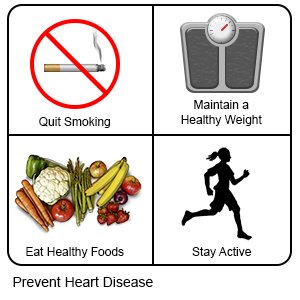Enhanced External Counterpulsation
Medically reviewed by Drugs.com. Last updated on Aug 4, 2025.
What is enhanced external counterpulsation?
Enhanced external counterpulsation (EECP) is a nonsurgical procedure used to increase blood flow to your heart.
Why do I need EECP?
You may need EECP if you have a blood vessel blockage. Blockage can occur if you have coronary artery disease, acute coronary syndrome, or congestive heart failure. You may also have a blockage from a heart attack. When your heart does not get enough blood and oxygen, it does not pump well. This means less oxygen travels through your body. You may have chest pain, feel more tired than usual, and have trouble breathing.
How will EECP help me?
You may need less heart medicine after EECP therapy. EECP can also reduce inflammation in your heart. Your heart may pump better, and more blood may be returned to your heart from your body. EECP therapy may also help decrease your chest pain and increase your energy level. The results of EECP therapy may last weeks or years after therapy ends.
How is EECP done?
Healthcare providers will place large cuffs on your upper and lower legs. The cuffs look like large blood pressure cuffs. The cuffs will fill with air, causing them to squeeze your legs. The cuffs on your lower legs squeeze first, then your upper leg cuffs will squeeze. The cuffs will then release the air. The computer times the squeezes so that they happen when your heart beats. With each squeeze, blood is forced back up to your heart.
Related medications
How often do I need EECP?
You may need EECP treatment once a day, 5 days a week. Each treatment will take up to 2 hours. EECP treatment usually takes about 7 weeks to complete. If your symptoms do not improve after the first 7 weeks, you may need up to 12 more treatments.
What lifestyle changes can I make to manage my heart condition?
- Do not smoke. If you smoke, it is never too late to quit. Ask your healthcare provider for information if you need help quitting.
- Eat a variety of healthy foods. Healthy foods include fruits, vegetables, whole-grain breads, low-fat dairy products, beans, lean meats, and fish. You may need to limit fat, salt, or sugar. Ask if you need to be on a special diet.
- Exercise as directed. Ask your healthcare provider about the best exercise plan for you. Exercise makes the heart stronger and lowers blood pressure.
- Decrease stress. Talk to your healthcare provider about the best ways to manage stress. Deep breathing, meditation, and listening to music may help decrease your stress.

When should I contact my healthcare provider?
- Your leg tingling gets worse after your EECP treatments.
- Your legs are tender, bruised, or blistered.
- You have swelling in your legs or ankles.
- Your symptoms return.
- You have questions or concerns about your condition or care.
When should I seek immediate care or call 911?
- You get dizzy and feel faint.
- You have any of the following signs of a heart attack:
- Squeezing, pressure, or pain in your chest
- You may also have any of the following:
- Discomfort or pain in your back, neck, jaw, stomach, or arm
- Shortness of breath
- Nausea or vomiting
- Lightheadedness or a sudden cold sweat
Care Agreement
You have the right to help plan your care. Learn about your health condition and how it may be treated. Discuss treatment options with your healthcare providers to decide what care you want to receive. You always have the right to refuse treatment. The above information is an educational aid only. It is not intended as medical advice for individual conditions or treatments. Talk to your doctor, nurse or pharmacist before following any medical regimen to see if it is safe and effective for you.© Copyright Merative 2025 Information is for End User's use only and may not be sold, redistributed or otherwise used for commercial purposes.
Further information
Always consult your healthcare provider to ensure the information displayed on this page applies to your personal circumstances.
